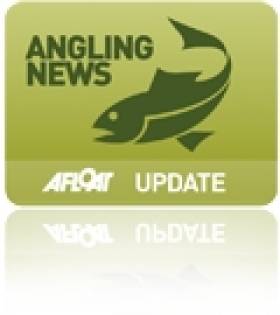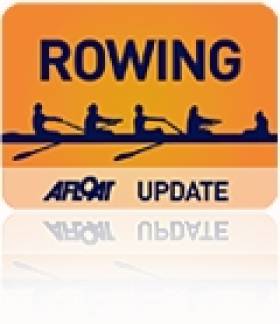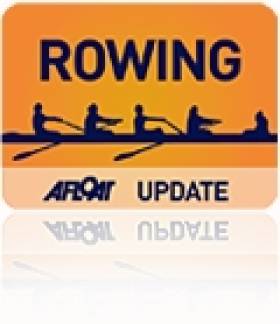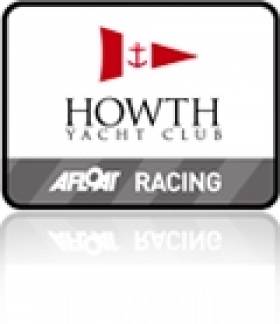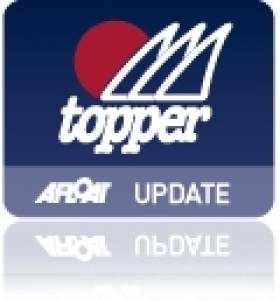Displaying items by tag: Championships
Dates Announced for Coarse Fishing Qualifiers in 2012
#ANGLING - Qualifiers to select teams for the 2013 World, European and Celtic Cup coarse fishing teams will be fished over six weekends in 2012.
The float and feeder teams for the National Coarse Fishing Federation of Ireland (NCFFI) squads will be decided via an All Ireland Qualifier format to CIPS rules.
Team manager Mark Theedom will select his teams from the top 20 anglers in the float qualifiers and the top 50% of anglers taking part in the feeder qualifiers.
The series will be open to all anglers who are members of NCFFI-affiliated clubs, and is intended to be more inclusive and encourage many more anglers to participate.
All senior anglers will pay an entry fee of €60 for the six-match series which will help fund teams travelling to the 2013 championships. Individual anglers not intending to fish the series but wishing to fish individual qualifiers in their local area will be charged €15. Juniors will not be expected to pay any entry fee.
The qualifier weekends are as follows:
- 21-22 April – River Barrow, Co Carlow
- 19-20 May – Inniscarra, Co Cork
- 2-3 June – River Shannon (O’Brien’s Bridge), Co Clare
- 11-12 August – Lough Muckno, Co Monaghan
- 22-23 September - Lough Oughter, Co Cavan
- 20-21 October – Lower River Bann, Co Antrim
Two womens' boats will compete for Olympic qualification, another is seeking Paralympics qualification and two boats are entered in non-Olympic world championship events.
The boats with ambition for Olympic qualification are the lightweight double scull of Claire Lambe and Siobhan McCrohan and the openweight women's double scull of Sanita Puspure and Lisa Dilleen.
With lightweight double sculls being the only boat class for lightweight women, the entry of 26 boats will generate intense competition for the eight Olympic places on offer this year. Lambe and McCrohan, who came fourth at last year's European championships, will be competitive for one of these Olympic places, but it will be very tight with any mistakes or errors making a dramatic difference in final results.
Similarly the openweight women's double scull has eight Olympic places on offer with 19 entries. The newly formed double scull is a partnership between Dilleen, a 20 year old from Galway, who came fourth in the World Junior Rowing Championships two years ago; and Sanita Puspure, a recently naturalised Irish citizen from Latvia. In 2003, Puspure was a bronze medallist for Latvia at under 23 level. The Irish pair finished fifth at the first World Cup earlier this summer in Munich, followed by an eleventh place in Lucerne.
For the first time, Ireland has a boat attempting qualification for next year's London Paralympic games in the form of a mixed coxed four crew in the legs, trunk, and arms (LTA) category. There are 16 entries with 8 qualifying. Ireland's boat finished fifth at the 2010 World Rowing Championships, and whilst the number of entrants has increased this year, the crew have a good chance of making the first eight to qualify.
Performance director Martin McElroy, an Olympic gold medal winning coach with the British team at the Sydney Olympics in 2000, said today, "Only our adaptive athletes went to the 2010 World Rowing championships. For all the others competing, it's a first time experience, and in an Olympic qualification year that's a big ask."
"When I started in my role as performance director in 2009, I knew we were missing a generation of athletes. A look at the age demographic of our team confirms that. However I am very pleased that we have a young ambitious group of athletes who are willing to take it on and it is not beyond the bounds of possibility that one or more of the boats may qualify. It's a big ask but it's not impossible. Added to that, we have a Paralympic boat seeking qualification for the first time"
The men's lightweight quadruple scull contains the same line-up that won a silver medal at the 2010 World Under-23 Rowing Championships. A strategic decision was taken to favour the non-Olympic boat class for these young athletes in order to continue their international development.
Performance director, Martin McElroy explained, "The choice was to risk immersing these young athletes in the cauldron of Olympic lightweight class boats which are amongst the most competitive classes in the Olympic regatta and create a very negative experience early in their careers, or take a more measured approach to their development and transition to the senior level through the non-Olympic boat classes."
"It was clear to us that we did not have a boat that would be close to qualification at this time and we discussed this openly with the squad. With 34 entries and only 11 to qualify, I'm satisfied that we've taken the right decision. These young athletes can compete positively in the quadruple scull event and continue taking the steps necessary to transition successfully from under 23 to senior."
Sarah Dolan a 21-year old Trinity college engineering student races in the women's lightweight single scull, an event with 22 entries.
NUIG/Grainne Mhaol will have just one change of personnel to the crew which won the men’s senior eights as NUIG last year at this year's National Rowing Championships. Liam Molloy comes in for Paul Giblin, who is work-tied. UCD have a strong crew, which will be stroked by Tom Doyle, while Queen’s University have just three members of last year’s crew. Trinity will be represented by their intermediate eight. The Championships start on Thursday at the National Rowing Centre in Farran Wood, Cork. The first big final is the women’s senior four, which is scheduled for 12 o’clock.
Howth Yacht Club Launches 2011 Sailing Programme
Howth Yacht Club will launch its programme of open sailing events for 2011 at the club house tomorrow evening (Thursday 31 March).
In addition to running club sailing throughout the year, and both junior and adult sailing courses to get more involved in the sport, HYC will also be hosting more than 20 open events this year.
These are set to include local, provincial, national and international championships, which are hopes to attract visitors from all over Ireland and beyond.
For more details visit the Howth Yacht Club website at www.hyc.ie.
Dun Laoghaire Set for Topper World Champs
The club is expecting a turnout of up to 300 sailors that will make it the biggest dinghy sailing event in the country this year. "We will have a large contingent from the UK and many sailors from far away – we have had interest from Korea, Japan and Hong Kong, for example". Says Margaret Margaret Kneafsey, Chairperson of the Organising Committee.
Carlow sailor Finn Lynch, 16, who is the reigning British and Irish champion finished third in the 2010 World Championships in Lake Como, Italy.
The event has its own website with details on accommodation and logistics and entries.


























